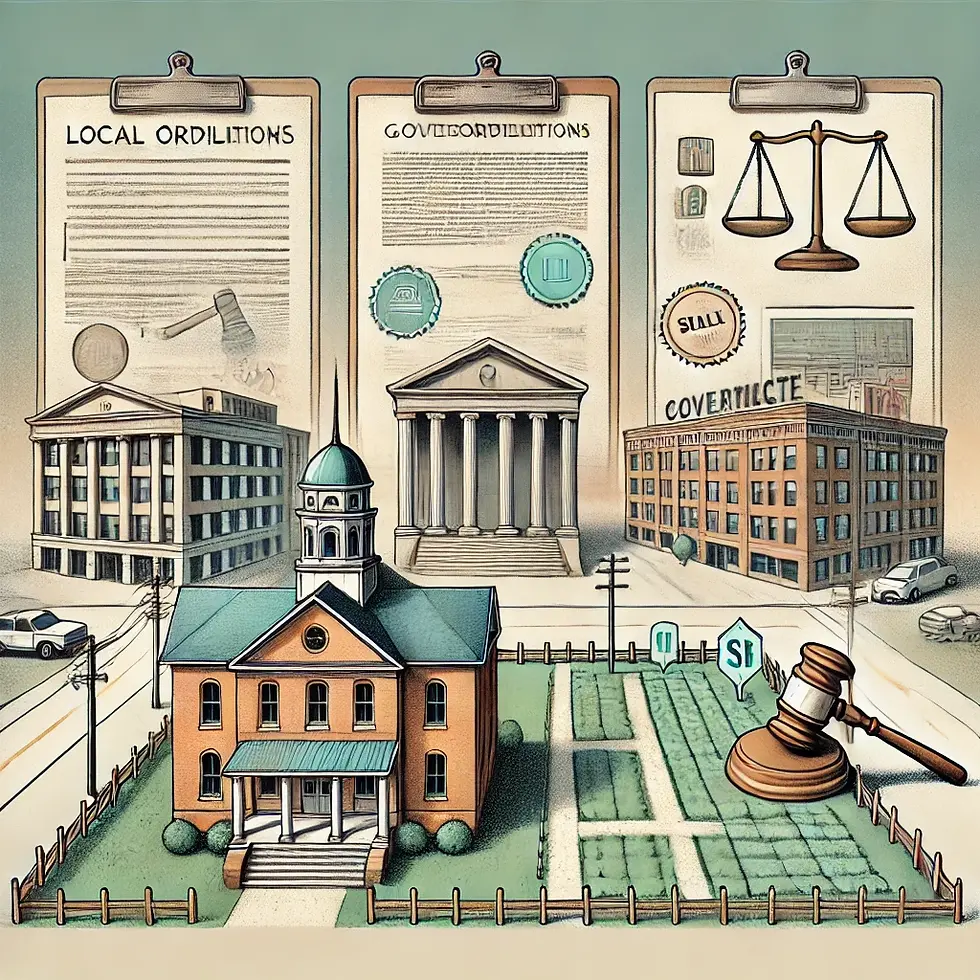Fayetteville, NC: The "Land" of Opportunity for Real Estate Investors
- Brett Campbell

- Jul 29, 2023
- 4 min read
If you are looking for a profitable and exciting investment opportunity in the Fayetteville real estate market, you may want to consider vacant land investing. Located in Cumberland County, Fayetteville serves as the county seat and is the largest city in the Fayetteville Metropolitan Statistical Area (MSA), which includes Cumberland, Hoke, and Harnett counties. The Fayetteville MSA has a population of 526,719 as of 2019, making it the 108th largest MSA in the United States.
Fayetteville is home to Fort Liberty (Bragg), the largest military installation in the world, and Pope Airfield, a strategically important U.S. Air Force base. The city also has a rich history and culture, as well as a diverse and growing economy. Fayetteville offers many attractions and amenities for residents and visitors alike, such as museums, parks, festivals, sports, shopping, dining, and entertainment.
But what makes Fayetteville an attractive market for vacant land investing? Keep reading and we’ll explore the benefits and opportunities that come with Land investing in the Fayetteville market.
Less Competition - Compared to buying developed properties, land investing typically has less competition in the market. It’s not as popular as other areas of real estate investing, which can work in an investor’s favor. This can result in properties selling for under market value and provide the opportunity for knowledgeable investors to negotiate favorable terms with sellers.
Lower Maintenance and Holding Costs - Vacant land also has lower holding and maintenance costs than developed properties. There’s no need to worry about evictions, leaky toilets, or ongoing maintenance headaches, which are typical with residential and commercial properties. Fewer maintenance expenses and holding costs make vacant land more passive for investors than other forms of real estate investing.
Development Potential - Purchasing vacant land offers investors the ability to develop the land for various purposes such as commercial, residential, agricultural, or recreational purposes. Investors who understand their market and focus on acquiring properties with high potential for future development can earn significant returns on their investment through re-zoning, entitlement and/or development.
Fayetteville has a lot of development potential due to its strategic location, growing population, and diverse economy. The city is located on Interstate 95, which connects it to major markets such as Raleigh-Durham-Chapel Hill, Charlotte, Wilmington, and Richmond. The city also has access to other highways such as U.S. Route 401 and North Carolina Highway 87.
The population of Fayetteville is projected to grow by 7.8% from 2020 to 2025, which will increase the demand for housing and services in the area. The economy of Fayetteville is diversified and resilient, with sectors such as defense, health care, education, manufacturing, retail, tourism, and entertainment contributing to its growth and stability.
Flexible Financing Options - Buying vacant land may be more affordable to acquire when compared to developed properties, but one still needs access to capital to close the transaction. The good news is that financing options for vacant land are flexible, and investors have different options to consider. Many banks and credit unions offer land loans, and some land sellers offer easy and direct owner financing terms, which require little to no money down.
Diversification - Vacant land investing is also an excellent way to diversify your investment portfolio. Since it is a different asset class, it helps to protect your portfolio against market downturns. It can also help spread risk and protect wealth, particularly when invested in different types of land.
Vacant land can be classified into different types based on its location, use, and characteristics. Some of the common types of land are:
Rural Land: Land that is located outside of urban areas, and is used for agricultural, recreational, or conservation purposes.
Urban Land: Land that is located within or near urban areas, and is used for residential, commercial, or industrial purposes.
Waterfront Land: Land that is adjacent to a body of water, such as a lake, river, or ocean.
Mountain Land: Land that is located in or near mountainous regions, and offers scenic views and recreational opportunities.
Desert Land: Land that is located in arid or semi-arid regions, and has a dry and hot climate.
Each type of land has its own advantages and disadvantages, and may perform differently depending on the market conditions and demand.
Before you jump into vacant land investing, you should also be aware of some of the risks and drawbacks that come with it. Here are some of the challenges that you may face when investing
Due Diligence - Vacant land requires more research and analysis than developed properties. You need to check the zoning regulations, environmental conditions, utility availability, title issues, and market trends.
Development Costs - Vacant land may have lower holding costs, but it also has higher development costs. You need to budget for the expenses of clearing, grading, surveying, permitting, building, and marketing the property.
Marketability - Vacant land WILL take longer to entitle, develop, sell and/or lease than existing properties. As such, it is imperative that you have a clear plan that allows for multiple development approaches and have a plan to exit the deal in the event of an unexpected event/emergency.
As you can see, vacant land investing is an opportunity worth exploring. It offers many benefits and opportunities that can help you achieve your financial goals and dreams. However, it also requires careful planning and preparation to overcome the challenges and risks involved. If you are interested in vacant land investing in the Fayetteville MSA, contact us today. We are experts in vacant land investing, and we can help you find the best opportunities to maximize investment returns.
Don’t miss this chance to invest in one of the most promising markets in North Carolina!



Comments